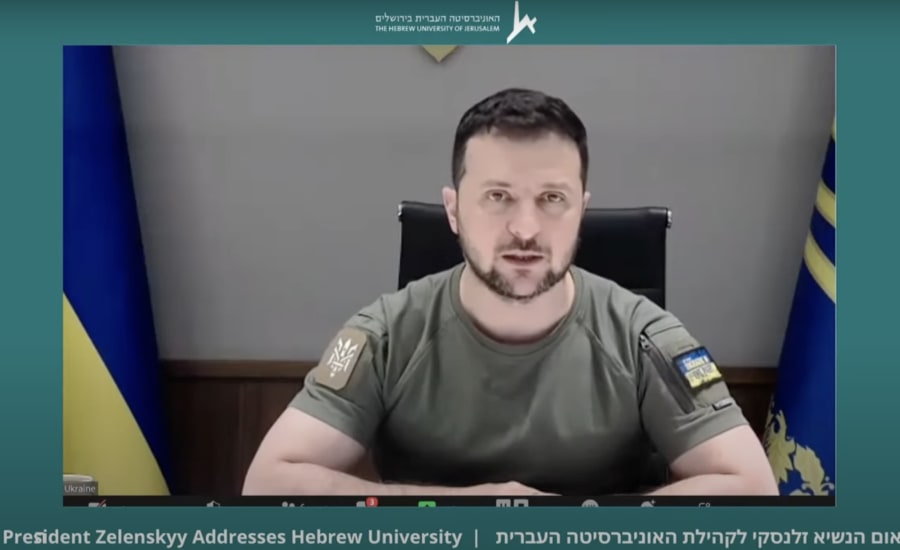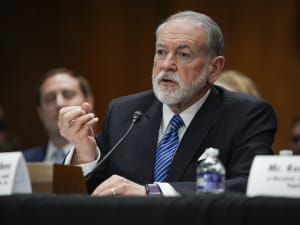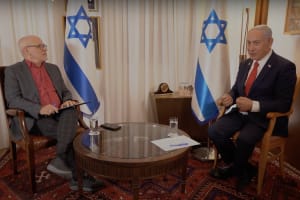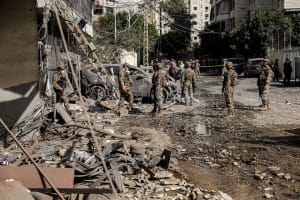Zelenskyy tells Israeli students: Other countries have done more for Ukraine than Israel
Speaking to Jerusalem’s Hebrew University audience, Ukrainian president calls on Israel to join the international sanctions against Russia

Ukraine’s President Volodymyr Zelenskyy castigated the Israeli government on Thursday for not offering sufficient support following the Russian invasion.
"Unfortunately, we have not yet seen Israel join the sanctions regime," Zelenskyy said in a special address via Zoom to students at Hebrew University in Jerusalem.
While offering appreciation for the backing of Israeli citizens, Zelenskyy noted that Israel has not done enough, comparing the Jewish state to countries like Japan and Australia who have placed sanctions on Russia.
"When governments introduce sanctions against Russia, this is not about money or about business. It is about values and general security,” he said.
“This is about... everyone who is willing to destroy another nation has to be held accountable,” he added.
"Luxembourg, with a population of some 600,000 people, provided us defensive aid equal to 15% of their defense budget. But what about Israel? We understand this is not an easy situation, but we would like to see greater support,” Zelenskyy said.
He also noted that Ireland "canceled the visa regime for Ukrainians so they could go there and preserve their lives. Japan and Canada simplified access.”
Israel has only offered an automatic visitor visa extension for Ukrainian nationals who arrived after the conflict began at the end of May.
The speech came just hours before European leaders gave Ukraine status for European Union candidacy along with Moldova.
"Please remember how much our cultures are linked, how close our ties are and what the level of understanding should be between us,” Zelenskyy pled with the Israeli students. “So why do we have this misunderstanding with some representative of the government? I do not know."
“I love your country,” Zelenskyy said. “I am grateful to the people of Israel. I am grateful to you for the sincere and emotional support for Ukraine, for your support of Ukrainians, I’m grateful for the Ukrainian flags on your streets. We see this and we value this very much.”
This was the Ukrainian president’s second speech to Israelis after his address to Knesset members in March.
Calling Russia, a "terror state," Zelenskyy said Russian forces are “shooting people on the streets” and “torturing people.”
"They attack and destroy our cities, and they burn everything in their path,” he added. "Some 2,000 educational institutions have already destroyed in Ukraine. What kind of country intentionally bombards kindergartens?"
"On Friday we will mark four months since the Russians invaded Ukraine and Moscow declared war against Kyiv," Zelenskyy said. "I think you have all witnessed what a tragedy it is, but nevertheless I'm sure we will prevail and win."
His remarks come as reports indicate that Russian forces are pushing deeper into the Eastern Donbas region. Kremlin spokesperson Dmitry Peskov said on Thursday that Ukraine must accept all of Russia's demands if it wants an end to the war.
At the end of the speech, Zelenskyy responded to questions by the students and the academic staff. When asked what his vision for Ukraine is for the next five to 10 years, and if the war will come to an end, Zelenskyy answered: “We will have a similar situation as yours, in Israel. Maybe Russia will attack us again sometime in the future, but we will rebuild our country. We will invest in security of all public spaces, especially within our borders. With a neighbor like Russia, we understand that attacks could happen at any given time. We will do everything in order to promote string defense systems.”
University President Prof. Asher Cohen thanked Zelenskyy for his speech, adding that it is part of the “University's policy not to remain indifferent to the unnecessary war in which innocent people are being deprived of their lives, and families are ruined due to Russia’s blatant aggression.”
“We cannot afford to stand aside – neither as a nation nor as individuals, and certainly not as the leading academic institution in Israel,” Cohen stressed.
Earlier this week, Israel reopened its embassy in Kyiv after it had been closed for more than four months.
“Over 80 people received consular services from the staff in Kyiv, with additional services provided in Lviv,” read a statement from the Foreign Ministry.

Tal Heinrich is a senior correspondent for both ALL ISRAEL NEWS and ALL ARAB NEWS. She is currently based in New York City. Tal also provides reports and analysis for Israeli Hebrew media Channel 14 News.













